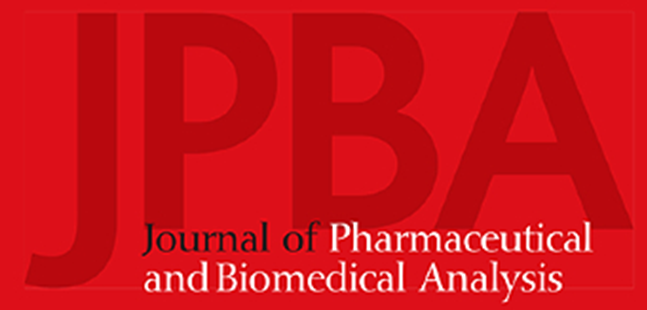course
NEW: best poster awards
Two best poster awards will be provided by the Journal of Pharmaceutical and Biomedical Analysis (Elsevier) to the winners of the competition.
All the posters will be subjected to a peer-review evaluation.
The authors of the posters will have a chat to answer to the questions for all the duration of the congress.
The authors are kindly requested to be present on-line in the virtual room devoted to their session on the date and time scheduled for their contribution.
The award criteria will include:
- Interest of the subject in the pharmaceutical analysis field
- Scientific novelty of the work
- Clarity of the presentation (video)
- Consistency of the results
- Extent of the collaboration between different affiliations
- Visual impact (slides)
- Overall reviewer rating

In memory of Prof. Sergio Pinzauti
This edition of RDPA is fully dedicated to the memory of Emeritus Professor Sergio Pinzauti.

Born in 1939 in Florence, Sergio Pinzauti was Full Professor of the University of Florence from 1987 to 2010, having several institutional roles. He was Dean of the Faculty of Pharmacy from 1995 to 2001 and from 2007 to 2010. He was a member of the Department of Pharmaceutical Sciences - of which he was the Director from 1988 to 1994 - and of the Department of Chemistry "Ugo Schiff". He was also a member of the Board of Directors (1992-1995). Author and co-author of more than 230 publications in (bio)pharmaceutical analysis, in 1983 Prof. Pinzauti contributed to the launch of the "Journal of Pharmaceutical and Biomedical Analysis" (Elsevier), of which he became Editor in 2002. Creative and proactive, Prof. Pinzauti was founder and organizer of the series of biennial international conferences on "Recent Development on Pharmaceutical Analysis” (RDPA) and of the annual "Summer Course on Pharmaceutical Analysis” (SSPA).
We will miss him for his high scientific profile, his dedication to research and teaching with enthusiasm and innovation in the ambit of pharmaceutical and biomedical analysis.
Biographical Sketch · Prof. Caterina Temporini
BIOGRAPHICAL SKETCH · Prof. Caterina Temporini
University of Pavia
Italy
Caterina Temporini was born on 20 April 1976 and graduated in Pharmacy at the University of Pavia in 2000: She obtained her PhD from the same institution in 2005. Since 2015 she is Associate Professor in Pharmaceutical Analysis at the University of Pavia.
Her main research deal with the development and application of liquid phase separations and mass spectrometry (LC-MS) based methods for the functional and structural analysis of proteins.
The earliest activities focused on the development of enzyme-based chromatographic stationary phases for in-flow reactions in different pharmaceutical applications, ranging from enantioselective discrimination/catalysis (penicillin G acylase, lipase), peptide/glycopeptide mapping (trypsin, chymotrypsin, pronase), recombinant protein production (enterokinase), inhibition studies (purine nucleoside phosphorylase as target for antitubercular drugs). Biochromatographic systems based on immobilized receptors, such as membrane (GPR17 and A2A) and soluble (PPAR-α and PPAR-) receptors, were also developed to characterize ligand-protein interactions with a great impact in the discovery of new potential ligands.
In the recent years, the research carried out and directed by Prof. Temporini is strongly dedicated to the development and the application of integrated analytical platforms for structural analysis and process optimization of biopharmaceuticals, including polypeptides, glycopeptides, and monoclonal antibodies from different sources (CHO cells, plants). The characterization of recombinant protein critical quality attributes is obtained by the most recent chromatographic stationary phases (HILIC, SEC, RP, IEX, Affinity) and instrumentations (HRMS). Within a multidisciplinary network, she is also working on the design, the preparation and analytical characterization of neo-glycocojugate proteins as potential vaccines active against tuberculosis.
Biographical Sketch · Prof. Deirdre Cabooter
BIOGRAPHICAL SKETCH · Prof. Deirdre Cabooter
Department of Pharmaceutical and Pharmacological Sciences
University of Leuven
Belgium
Deirdre Cabooter is a tenured research professor at the Department of Pharmaceutical and Pharmacological Sciences at the University of Leuven (KU Leuven, Belgium). She obtained a PhD in Chemical Engineering under supervision of Prof. Gert Desmet in 2009. Her current research is directed towards a deeper understanding of the fundamentals of liquid chromatography, the evaluation of novel supports in chromatography, the analysis of complex samples in pharmaceutical, bio-analytical and environmental applications, retention modeling and solutions for automated method development. She has published over 100 peer-reviewed papers and book chapters, and is currently the promoter of 9 PhD students. She received the LCGC Emerging Leader in Chromatography Award in 2017, the Jubilee Medal of the Chromatographic Society in 2020, and is an editor of Journal of Chromatography A since 2018.
Biographical Sketch · Dr. Federica Pollastro
BIOGRAPHICAL SKETCH · Dr. Federica Pollastro
Department of Pharmaceutical Sciences
University of Eastern Piedmont (UPO)
Novara, Italy
Federica Pollastro has worked on natural bioactive compounds from alimentary, toxic and psychoactive plant studying the dietary and pharmaceutic implications of their pure compounds. Sesquiterpenoids from plant have been central to her research throughout the research career. In this area, she is proficient in isolation and structural elucidation of phytochemicals. Collaborations with the COSMESE (Prof. Ballero) and Prof. Mozrzymas (Wroclaw University) led her to the identification of the target and mechanism of action of polyacetilene oenanthotoxin (Sardonic Grin). She has worked on chemoreception based on sesquiterpene-γ-lactones from different species of plant (A. umbelliformis, A. absinthium, T. parthenium) discovering their involvement in nociception (TRPs) and on bitter taste receptor (hTAS2R46). This work gave her the opportunity to find a new compound belonging to the rare class of sesterpenes. In collaboration with Prof. Taglialatela-Scafati, she has isolated a new class of non-psychoactive cannabinoids from Cannabis sativa and semisynthetised cannabinoid-quinols which pharmaceutical implication have been studied by Prof. Eduardo Munoz (Cordoba). She focused her attention also on molecules able to interact with lipid peroxidation, eicosanoids biosynthesis, PGE2 synthase, cellular proliferation, endoplasmic reticulum, all target of pharmacological relevance that gave her the opportunity to identify important bioactive lead-compounds, unique cumarine-ethers from Thapsia garganica and a new type of triglycedrides from Helichrysum italicum. During this time, she has directly supervised the work of undergraduate students and she is actually the coordinator of a phytochemical lab group and the CEO of the PlantaChem spin off.